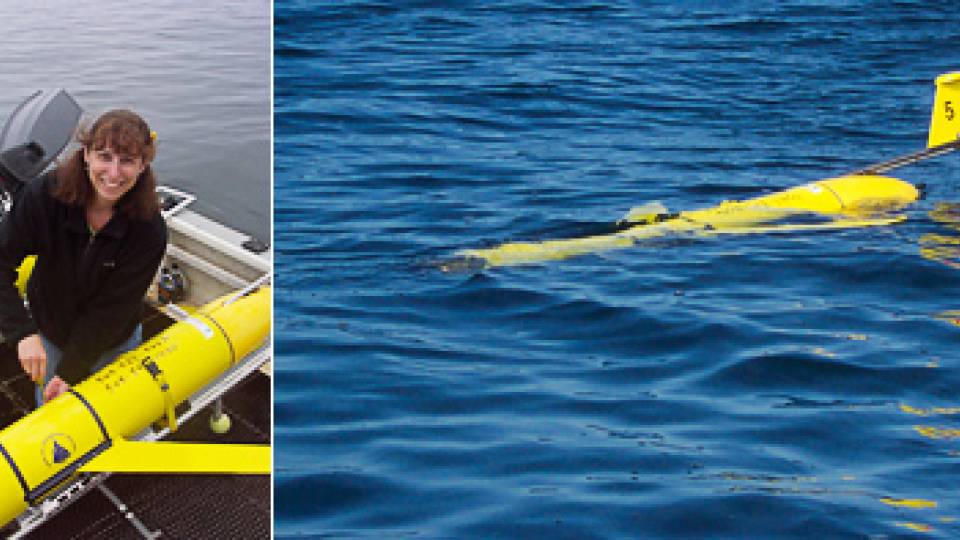A team of Princeton University students is competing in a military-sponsored contest to create a full-size, self-driving vehicle that negotiates rugged terrain with no human input. The students and their vehicle, a salvaged pickup truck dubbed "Prospect 11," are currently in California for several days of intensive trials along with 42 rival teams.
The students are participating in the "DARPA Grand Challenge," a contest with a $2 million prize sponsored by the Defense Advanced Research Projects Agency, the research arm of the Department of Defense. Details about the contest, team standings and a blog from the students are available through the DARPA Web site.
The students, who are being advised by Alain Kornhauser, professor of operations research and financial engineering, began their effort in May 2004. They worked for a year to create a vehicle that uses a global positioning system and computer vision to follow a course and avoid obstacles. After two visits from DARPA officials to observe the vehicle's performance, the team was chosen as an alternate semifinalist. The semifinal round is now occurring at the California Speedway in Fontana, Calif.
Based on the results of this round, DARPA will select 20 teams to compete in the DARPA Grand Challenge finals. They are scheduled to start Oct. 8 in the desert of Primm, Nev., where the vehicles will be subjected to a 150-mile course. DARPA will award $2 million to the team whose autonomous vehicle correctly completes the route in the fastest time under 10 hours.
Regardless of whether they advance to the final round, the students feel an enormous sense of accomplishment, said team member Anand Atreya, a junior. "The fact we've engineered a vehicle that will run by itself on a course we specified is pretty amazing," Atreya said.



